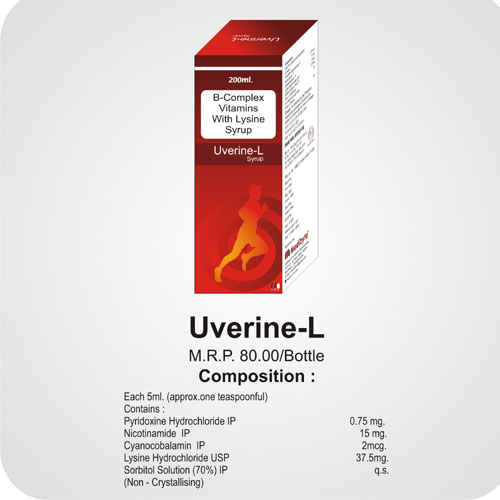- 9816857058
- Plot No 158,Industrial Area Phase 1, Panchkula, Haryana

B-complex + Multivitamin Uses
The B Vitamins are insoluble in water, your body doesn’t store them. That’s why your diet needs them every day. B vitamins have many important roles and are essential for good health. B-complex vitamins are a family of nutrients that play a variety of important parts in your body. Most people get the recommended amount of B vitamins if they are older, pregnant, have certain genetics, are taking certain medications, or have been drinking alcohol.
Uses and Benefits of B-complex + Multivitamin Medicine
- Multivitamins + B-complex can boost your mental and physical health and can help you to perform well in your daily routine.
- B-complex and multivitamins can increase the efficiency of the brain and other organs.
- According to studies Multivitamin + B-complex can reduce overall tiredness and Stress from your brain.
- B-complex + multivitamins can reduce the chances of having anxiety or depression in the human body.
Direction To Use
These are some benefits you can enjoy in your daily routine while having treatment with multivitamins and B-complex. This medication is very fast and effective so this medication requires some serious and well-balanced routine. Such as –
- You have to make sure you are consuming properly balanced food because this medication is rich in multivitamins.
- Make sure to consume B-complex + Multivitamins at the same time every day this will provide you with good results
- Shake the bottle well before consuming.
- Store it in a cool place.
- Keep it away from the reach of the children and pets.
B-Complex and Multivitamin Usually Contain the Following
B1 (Thiamine) – Thiamine plays a vital role in metabolism by aiding in the conversion of nutrients into energy. Foods rich in thiamine are pork, sunflower seed, and wheat germ.
- B2 (Riboflavin) – In addition to converting food into energy, riboflavin is also an antioxidant. The most abundant sources of riboflavin are organ meats, beef, and mushrooms.
- B3 (Niacin) – Niacin has different roles inside the body like, metabolism and DNA repair. Highly Niacin-containing foods are Chicken, Tuna, and Lentils.
- B5 (Pantothenic acid) – Pantothenic acid, like other B vitamins, aids in the absorption of energy from food and plays a role in producing hormones and cholesterol. Pantothenic acid is found in liver, fish, yogurt, and avocados.
- B6 (pyridoxine) – In addition, pyridoxine plays a role in the metabolism of amino acids, the formation of red blood cells, and the production of neurotransmitters, and is found in the highest concentration in chickpeas and salmon, as well as potatoes.
- B7 (Biotin) – Biotin plays a vital role in the metabolism of carbohydrates and fats and regulates gene expression. Some of the best sources of biotin include yeast, eggs, salmon, and cheese, as well as liver.
- B9 (Folate) – Folate is essential for cell development, amino acid synthesis, red and white blood cell production, and cell division. You can find folic acid in foods such as leafy green vegetables, liver, and beans, or in supplements.
- B12 (Cobalamin) – Perhaps the most famous B vitamin, B12 is essential for brain function, DNA synthesis, and red blood cell growth. B12 is naturally found in meat, eggs, seafood, and milk.
While some of these vitamins are similar, they have distinct roles and require different amounts. Another important nutrient is choline, which was once thought to be a vitamin or mineral, like the B-complex vitamins, and has some similarities.
B-complex + Multivitamin






